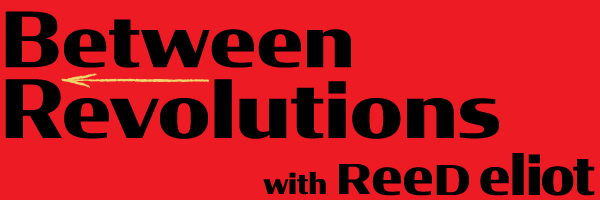Birthed Fully-formed in Full Protest Daddy regalia

If you're reading this, it is likely that you consider yourself part of a resistance movement against a fascist government coup. In some way, big or small, you want to fight the people who have taken over. You want to show up for your community, you want to obstruct deportations, you want to protect trans kids, you want to do a thousand and one acts of antifascist sabotage. Your heart is in the fight. You are building power. You are confident you can stand up to rude, cruel strangers in a rude and cruel world.
(For some of you, this comes very naturally. This article might help you get in the headspace of people who have not practiced any of this before. Let’s do a little roleplay, if none of this feels familiar. An exercise in understanding.)
Before you take on the state, can I ask you, comrade to comrade, when was the last time you told someone you liked that you were angry at them? When was the last time you told a salesperson that there was absolutely no way you were buying the extended warranty? Have you talked to your roommate about how nasty the microwave is? Did you ask for a raise at your last review?
When was the last time you stole something? Slapped a sticker on a bus stop? Have you ever lied to a cop?*
*(The correct answer to all of these questions is “nice try, officer.”)
It is hard to build a habit of breaking social pressure, but fascists rely on exploiting your normalcy bias. You've seen this before in a lower stakes situation: your racist uncle says something racist at Thanksgiving and any person who argues with him gets attacked for “causing a scene,” not letting the moment simply pass on. Nevermind that the problem originated with your uncle! Aunt Susie ruined dinner by calling him a bastard. He’s just Like That. She should have let him get it over with.
The part of us that cringes when someone speaks up is like a societal immune response, but it's attacking the wrong tissue. Our desire for tranquility in an autocratic society has become an autoimmune disorder. It is uncomfortable to witness an argument, it is uncomfortable to start an argument, but it is imperative that you begin to build an appetite for justice that outweighs your desire to smooth things over and make nice. Clinging to decorum derails material, anti-fascist democracy. The time for upholding an apparently conflict avoidant status quo is over.
When we “avoid conflict” in social settings, it's an adaptation to a system whose purported values are always in conflict with the actual results. Avoiding conflict with a frustrating boss at work upholds the unequal relationship we have with our bosses, but it is adaptive! We usually need to do it if we want to keep our jobs. Much of adult life is about determining which battles you're willing to risk your status quo over and which risks would be easier to shoulder together, later, with more practice and intent.
If you've ever heard “they can't arrest us all,” or “they can't fire us all,” it sounds like little kid logic at first. But what it is is a powerful mantra, something we say when we need to build our courage. Usually the people saying it are “troublemakers” we might have identified earlier. They have a well of bravery they tap into during moments of social crisis and they appear clear eyed and ready. We might admire them. We might be a little afraid of them. They often feel like another type of person entirely.
I am telling you, darling, they are not.
Courage is not, like so many movies would have you believe, a genetic predisposition or an inherent trait.
What these people have that you do not have, typically, is practice. Nobody is birthed fully formed from Zeus’s noggin in full Protest Daddy regalia. They have identified their values (“we deserve a city without police brutality!”) and they have determined which risks they felt ready to accept to act in service of them (“I would risk arrest for this”). They have often planned for a next step so that if the worst case scenario occurred, they'd feel as comfortable as possible to accept that risk (“I made plans for my roommate to feed my cats if I go to jail for the night.”) But they have often done something else before they are facing down the cops.
People with courage usually built that courage step by step for weeks or months or years. Courage is not, like so many movies would have you believe, a genetic predisposition or an inherent trait. There are no Chosen Ones coming to fix the world for us. If we want to see more courage in the world, we must cultivate it in ourselves.
How do we start? We take opportunities to practice in our daily lives. Learning to have difficult conversations, to stand up for yourself, is how you learn to stand up for all of us. I'm not asking you to burn down all your relationships for some future utopian socialist paradise; I'm asking you to learn how to have hard conversations with grace and still stand by your values. I'm asking you to develop a practice wherein you improve your conflict skills a little at a time.
Go ahead. Break a rule. Start small. Be too loud. Take up space. Learn how to do it now, so it’s easier when you need to be heroic.
Identify your values.
Identify your actions.
Identify your risks.
Plan in advance so you can meet those risks with a clear head.
Practice. Practice. Practice.
Remember:
We are going to get our asses kicked
And
We will win

